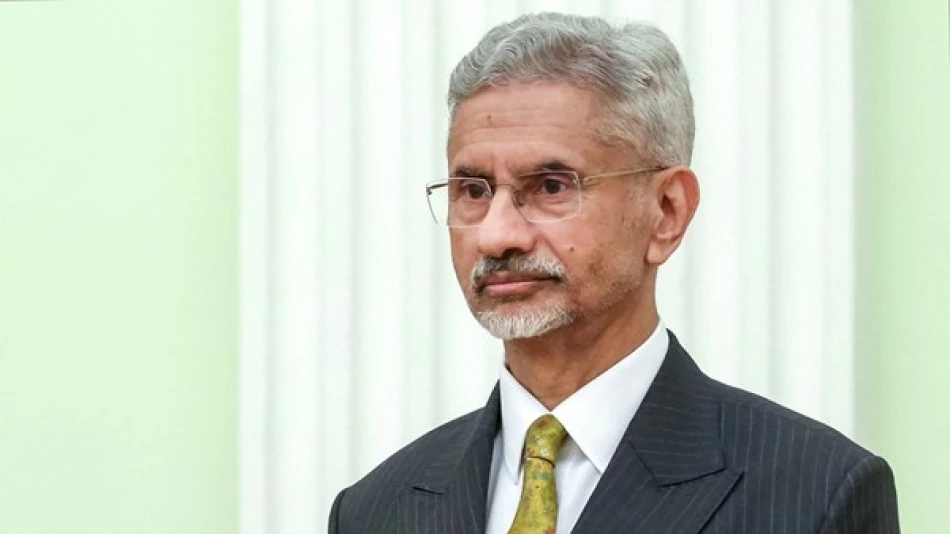
India and US Continue Negotiations on Tariff Dispute: Trade Talks Ongoing amid Economic Tensions
India Draws Hard Line as US Tariff Escalation Looms, Trade Talks Collapse
India's Foreign Minister has signaled that New Delhi will not compromise on key economic sectors despite facing some of the highest US tariffs globally, as trade negotiations between the world's largest and fifth-largest economies reach a critical impasse. With additional 25% tariffs set to take effect on August 27, bringing total US duties on Indian goods to 50%, the collapse of scheduled trade talks underscores how protectionist policies are fracturing even strategic partnerships.
Tariff War Intensifies as Diplomatic Channels Close
The cancellation of US trade negotiators' planned visit to New Delhi from August 25-29 has effectively ended hopes for immediate tariff relief or delays. This diplomatic breakdown comes as India already faces 25% tariffs on key exports, with another 25% tranche scheduled to hit later this month.
Speaking at an Economic Times event in New Delhi, Foreign Minister Subrahmanyam Jaishankar made clear that India's negotiating position remains unchanged despite the economic pressure. "We have certain red lines in negotiations that must be maintained and defended," he stated, specifically citing the interests of farmers and small-scale producers.
Agricultural Protectionism at the Heart of Dispute
The trade standoff centers on India's refusal to open its massive agriculture and dairy sectors to US competition—a position that reflects broader concerns about food security and rural employment in a country where agriculture employs nearly half the workforce. This protectionist stance mirrors similar agricultural trade disputes between the US and China, though India's democratic constraints make policy reversals even more politically challenging.
Unlike China's state-controlled economy, India's agricultural policies are deeply intertwined with electoral politics across multiple states. Any government seen as sacrificing farmer interests faces severe political consequences, as demonstrated by recent massive farmer protests that forced policy reversals.
Economic Stakes and Strategic Implications
The bilateral trade relationship, valued at over $190 billion annually, represents one of the most significant economic partnerships globally. However, the current trajectory suggests both nations are prioritizing domestic political considerations over economic optimization.
For US exporters, India's protected agricultural market represents a massive untapped opportunity, particularly in dairy products and advanced farming technology. For India, maintaining agricultural self-sufficiency aligns with broader strategic autonomy goals, even at the cost of higher consumer prices and reduced export competitiveness in other sectors.
Broader Pattern of Trade Fragmentation
This dispute reflects a global trend toward economic nationalism that has accelerated since 2016. Unlike previous trade conflicts that focused primarily on manufactured goods, the India-US standoff highlights how agricultural protectionism—historically accepted under WTO frameworks—is becoming a new battleground in trade wars.
The timing is particularly significant as both countries face domestic economic pressures. US agricultural exporters seek new markets amid ongoing trade tensions with China, while India grapples with rural unemployment and farmer debt crises that make agricultural liberalization politically toxic.
Jaishankar's assertion that "it is our right to make decisions in our national interest" signals that India views this dispute through a sovereignty lens rather than purely economic terms—a perspective that suggests limited room for compromise regardless of tariff escalation.
Most Viewed News

 Layla Al Mansoori
Layla Al Mansoori






